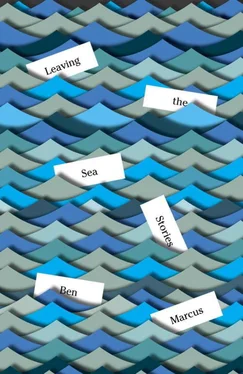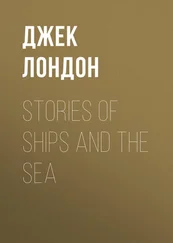He uncovered his mouth and cautiously sampled the air, expecting for a moment to pass out. Ahead of him the colleague slowed, and Thomas nursed the doorway, sipping little breaths with the spazzy orbit of an insect. He was wary of thresholds—some ungodly number of people got their shit handed to them in thresholds—and certainly he had not hovered about at the foot of the Moors like this before, because he had his ways of determining the area was empty before committing himself to the journey (what idiot didn’t?).
Thomas looked at the fine-suited shoulders of the colleague and wanted to write RIP on her back. It was clear that the designers of the Moors hoped its occupants would die spectacular deaths, and Thomas marveled that the colleague had somehow not spent her good cheer already and been roundly undone by the room. Generally, the people who returned from their adventure to the coffee cart, fitted with beverages, looked gray and dry and past all feeling, even if they had entered the area with a sexual glow, with good ambulation and overly publicized happiness. The most rigorous denial, not that he partook, was brought to its knees in this place. Let’s see the colleague not die a thousand little deaths, starting right now. Thomas found that if he had fountain or specimen work he could sit and watch his colleagues coming out of the Moors, and the experience felt similar to watching a chain of prisoners of war, the kind who had been sucked clean of life and now just shuffled in ill-fitting skin, beyond even any kind of animating pain.
The colleague, however, seemed shielded from the preordained defeat of the Moors. She swung her mug, and in her carriage was the simplistic bliss of a feeder before the great table of some famous god. She seemed to be indulging a moment of choice, and deep sighs of pleasure gusted from her chest, which from behind seemed to Thomas as though a soft wall was breathing. A soft wall swollen with something almost unbearably luscious underneath. Was that an okay thought to have? Hello, soft wall, he wanted to say. I love you .
This mug had been waved in his face before, too, and there was perhaps no other piece of pottery in the region used to draw so much rebuke from its witnesses. The colleague whirled it in such loops it seemed she was winding up to hurl it against the wall. And perhaps that would be fitting. Someone’s child had been wrongfully praised for making this mug, and now someone was rigorously putting it to use at work, actually drinking from it, to prove that taste, style, fashion, sense, and even logic itself—the holy quinitude of scrutiny—could be easily dismissed when it came to the astonishing achievements of children.
Thomas took in the baked, lumpy mess of it as it swung back and forth. What kind of monster couldn’t outright love a mug like that, love it without conditions, love it fully, and maybe, who knows, ejaculate on it out of joy? Are you that despicable? he asked himself silently in a booming voice his father might have adopted when he played the barrister in one of his cringing bouts of summer stage (a reminder arose that he should like to issue to everyone: Never watch your father perform in a play), that you must actually assess this mug with your full adult faculties as if you were a critic? Is there a power surge available to you when you cut down a child? Fine to be a gatekeeper of the fabricated objects of the world produced by lady and gentleman artisans, a mediator of value, as such, but this is a mug shaped by a child, for God’s sake, and what exactly is proven by its dismissal other than high and selfish pettiness, a deep insecurity, and a compulsive desire to alienate anyone in your blast radius?
The rhetoric flowed easily as Thomas silently attacked himself on the colleague’s behalf, and it was not entirely unpleasant to take on such an easy target, to hector from such a fixed moral point, even as he gazed at the grotesque mug swinging in front of him, rimed with lip junk and who knows what else. Chuff and bilge from the mouth. Speech powder . He puffed and tilted and half wished the colleague would turn around and notice him already, since there was something gallant flooding up. Thomas the Brave, defender of children, appearing now in the Moors, ladies and gentleman. Wouldn’t she, in some way, have to admire this, his sticking up for her kid? If only she knew my thoughts she would take her pants off. My thoughts should count for something .
She did not turn around. Willing it with his mind only seemed to make him tired. Thomas surveyed the brown wool length of her as she surveyed the coffee cart, and there was something sorrowful in how undefended she was, at least from this angle. People do not prepare for how they’ll be seen from behind, he thought, and it seemed decidedly unfair, if fairness still had any currency, that anyone could gain such a supreme advantage simply by taking up the rear and looking at a bodily territory that had in no way been readied for this sort of discerning view. Hello, my name is Thomas and I have seen you from behind. I have been granted the lion’s share of what there is to be known here . The colleague had no doubt poured vast resources into the project of her appearance—she was a prim and sharp little project of a person—but had spectacularly failed to engineer a posterior perspective.
To some degree, there was something inhuman about her from this angle, the Thomas angle. But when he thought about it, the term inhuman seemed wrong, however enjoyable it was to use. I stood at the Moors with the inhuman colleague. That sounded rather fine. It was evening, and I carried the inhuman colleague up the stairs to my rooms. In truth, this vantage, revealing the colleague’s disheveled back body, showed Thomas a part of the human that he must admit he felt no particular fondness for: the weak, sad, unnoticed part—keep your sadness under a rock, you sweet-boned colleague!—that could not be properly shielded by clothing. The great failing of the fashion industry. Clothiers, where are your geniuses of disguise? Posturally the colleague showed no sign (this wasn’t a poker face she had so much as a poker body ) that she knew some kind of serious assessment of her was under way, but indifference was a subterfuge, of course, and what could she gain, Thomas wondered, by revealing her worry? What did one ever gain? People prep themselves, if they prep themselves at all, in the front and, at most, glance over their shoulders at the mirror to see the grotesque calamity of their backsides, which become pulled long, pulled so terribly long, from the contortion. Should not a person of the colleague’s rank and stature have in her employ an assistant, a perspective manager (bring back the architect’s apprentice!), who might engineer many different views of her, so that her power and clout would not be so easily undermined if someone happened to see her out in the open like this, unprotected, completely vulnerable and, well—Thomas paused and looked around the Moors, wishing someone could appreciate the dramatic pause—killable? He spilled an ugly little laugh at the colleague and swiped at the air as if to erase it. I will be your backside witness, he wanted to whisper. I will see the sorrowful view. Send me, Thomas, first into the sad space. Because what good was the colleague’s power if she could not hide how desolate, nomadic, and freshly assaulted she looked from behind?
But there was no hiding in the Moors, and didn’t he know it. The sole bit of shelter was the beverage cart itself, fashioned to look like a house—a Tudor with chalk-plaster walls and splintered beams painted even darker to appear waterlogged, or possibly to suggest a more authentic species of wood, with predrilled wormholes and hand-painted knots and other calibrated imperfections that someone, somewhere had labored over—a chalk outline of a dead person appeared in Thomas’s mind. As fussy as the cart was, Thomas had never seen it tended to, filled or emptied, adjusted. And the design strategy—a Tudor house pumping coffee by the barrel—always did something sour to his mood. Depressed seemed too strong a word—he was saving this word for something really special—and yet something awful did well up in him when he visited the Tudor, even alone, when it was safe, and not being poisoned by a colleague. Because since when was a Tudor house a place to retrieve coffee? Precisely what historical narrative was being trotted out? Would it not be more apt if it was a beheading station, complete with guillotine? Other than the atmosphere of coziness a Tudor supposedly conveyed, which was predicated on one’s being able to hurl up a foreign language with the red-faced inhabitants whose hands were boiled and fat and who probably stank of vinegar, the cart had wheels and offered dehydrating beverages from a stout, flesh-colored spigot punched into its fake wall. If that was one of the mandatory fairy tales barked at the children of his generation—a house is really a sack of hot fluid on wheels, in which a giant, perhaps, swims—then he’d missed it growing up. Shouldn’t the coffee cart have skins, or, what were they called: peelable facades? A seasonal surface was needed, to mottle and fade and turn gray, only to slowly fill with blood, to pulse and throb, to maybe even bleed slightly onto your hands when you touched it. That would be a worthy coffee cart. A life-form in the Moors, with a dark leak of coffee. I would drink death water out of that item, thought Thomas. A thousand percent for sure.
Читать дальше












